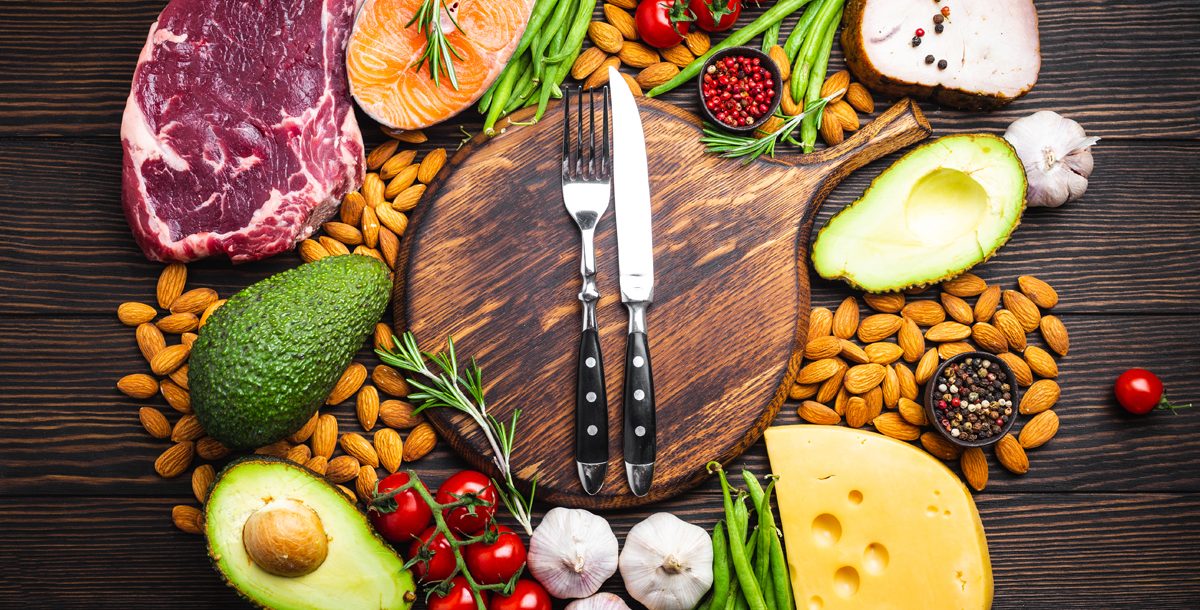Looking into a new diet for the new year? Whole30, Paleo, and Keto are some of the trendiest diets around. There are similarities between the three, but all have different guidelines and purposes.
Becky Niekamp, RD, LD, a registered dietitian at Mercy Health, walks us through these three diets along with their pros and cons.
“First and foremost, it is important to speak with your physician prior to starting any weight loss plan or drastic change in eating habits to make sure they are safe and healthy,” she says.
Whole30
Whole30 is a 30-day restrictive diet designed to reset your eating habits and boost your overall health. The diet avoids inflammatory foods such as grains, dairy, legumes, soy, sugar, and artificial sweeteners. It is similar to an elimination diet because it has you avoid some of the most problem-causing foods. When your body has inflammation, it acts like it’s fighting an infection — even though it isn’t.
- Pros: Unlike other trendy diets, Whole30 doesn’t boast dramatic weight loss results. It focuses on healthy eating habits and learning to work whole foods into your diet. Foods approved for the diet include fresh fruits and vegetables, seafood, eggs, meat, and healthy oils.
- Cons: A major drawback to this diet is that it eliminates whole grains entirely. Whole grains are a large source of fiber as well as other vitamins and minerals. Another disadvantage is there are no “cheat” days. If you slip up and eat an unapproved food, then you’re supposed to start back at day one. This might make it harder for you to stick to this diet.
Paleo
The Paleo diet is also known as the “caveman” diet. It focuses on eating foods people ate during the Paleolithic Era, food they got through hunting and gathering. The diet focuses on foods like lean meats, fish, fruits, vegetables, nuts, and seeds. You can’t eat dairy, legumes, or grains on this diet because these didn’t become food staples until farming came along. The theory behind this diet is that the human body isn’t designed to eat many of the foods available to us through farming and modern technology.
- Pros: Like Whole30, the Paleo diet puts an emphasis on eating clean. It eliminates processed foods and foods that can cause inflammation. Many people who follow the Paleo diet lose weight because of diet restriction. They also may see an improvement in their health.
- Cons: One of the biggest drawbacks of the Paleo diet is the cost, but that depends on what types of foods you ate before. This diet also eliminates whole grains, which are a good source of fiber. Paleo eating can be hard for vegetarians and vegans because of the emphasis on meat and lack of beans.
Keto
The ketogenic or keto diet is one of the many low-carb diets around. It differs from the others by focusing on getting around 70 percent of your daily calories from fat. Doctors originally developed this diet to treat epilepsy, but many people follow the diet to lose weight too. When following the keto diet, your body burns substances called ketones for energy rather than carbs. Your liver produces ketones from stored fat, but requires greatly reducing your carb intake to make them.
- Pros: Weight loss is one of the biggest advantages of the keto diet. Many people who follow this diet boast dramatic weight loss. In addition to helping treat seizures, the keto diet can be beneficial for other medical conditions, such as Type 2 diabetes. Many doctors recommend a low-carb diet to help keep diabetes under control.
- Cons: The keto diet is more restrictive than other low-carb diets. Followers must track carb levels and ketone levels to ensure their bodies go into ketosis, or the process that makes ketones. Eating something carb filled can cause your liver to stop making ketones. Fruits, grains, and legumes are off limits, as are many vegetables. Therefore, your body might not get enough nutrients if you follow the diet for a long period of time. Following this diet can also be hard because of the initial side effects and how restrictive it is.
“At the end of the day, there are many different approaches to weight loss,” Becky says. “Finding the meal pattern that works best for you, is safe, and can be adapted to maintain weight loss long term is key.”
Learn more about the weight loss services offered at Mercy Health.






